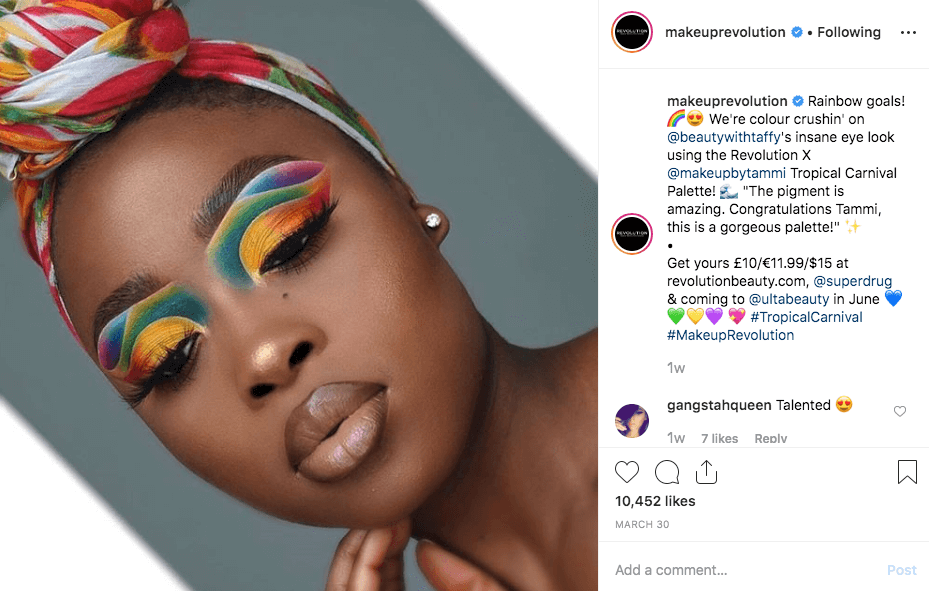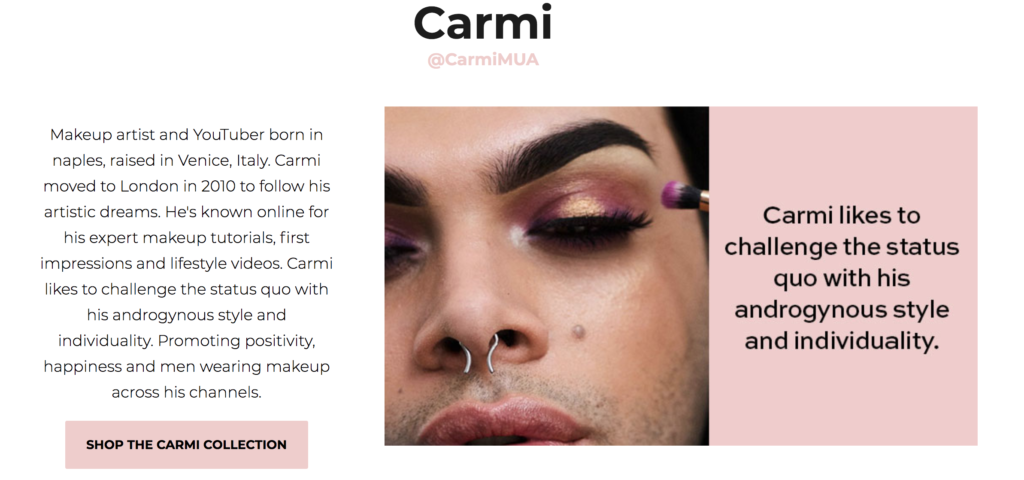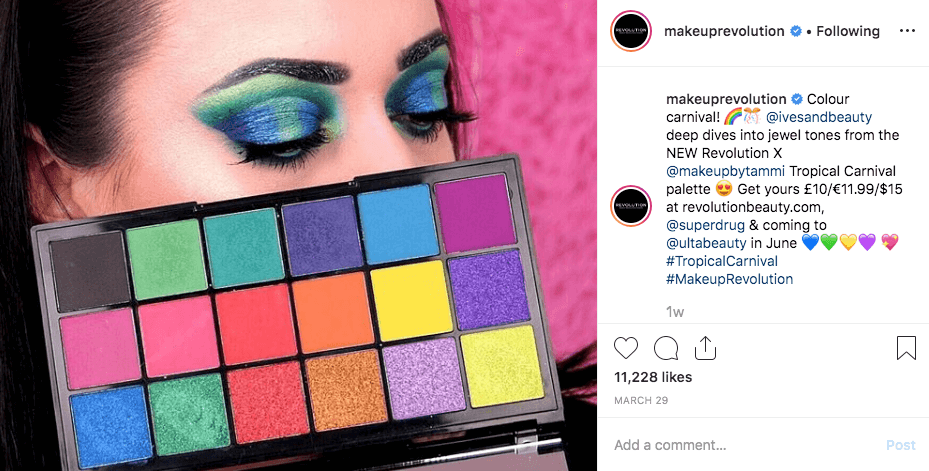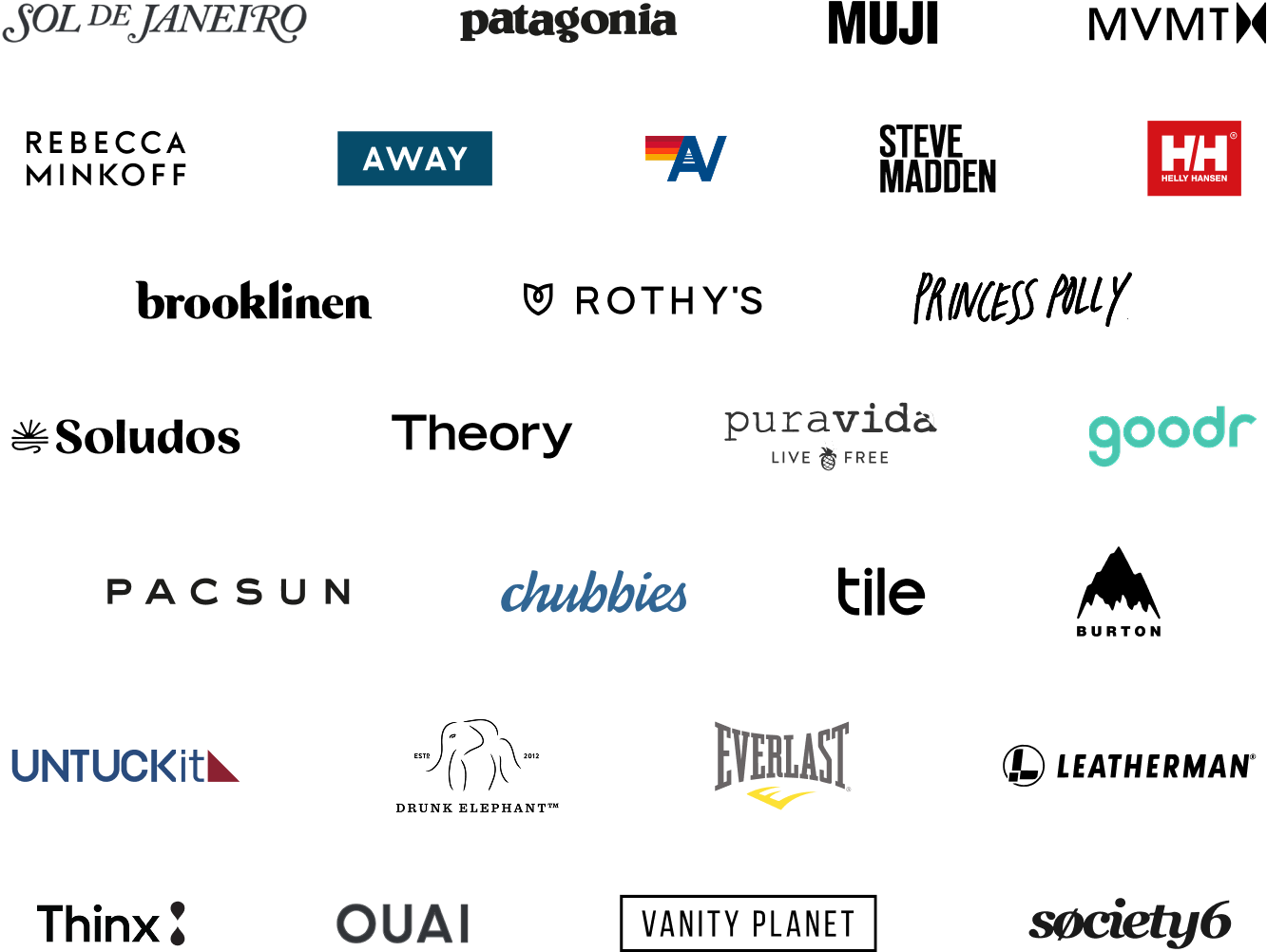Using Content to Build a Community
Content may be king, but only if it's the right type. In this lesson, learn how to effectively build a loyal community by creating and sharing the best content for your brand.
 D2C Marketing Course
D2C Marketing Course
Content may be king, but only if it's the right type. In this lesson, learn how to effectively build a loyal community by creating and sharing the best content for your brand.
In this lesson, learn how to effectively build a loyal community by creating and sharing the best content for your brand.
Revolution Beauty launched on Twitter several years ago without a marketing budget. We got famous because budding YouTubers discovered us organically — the girl or boy in their bedroom who dreams of becoming a makeup artist like their heroes, Jeffree Star or Patricia Bright.
They couldn’t afford MAC or other luxury brands, and they stumbled across our product at the drugstore. They realized it was really great quality and noticed that we were really fast at jumping on trends, so they started talking about us in their videos. We didn’t have any marketing budget at the time.

Content is really everything. Without that marketing budget or that ad spend, content is how you can get your messaging out there across your community pages. If we ask somebody to create a video that’s purely for our channels — we pay them for their time, of course, but we don’t pay for content on their channels. So, when we meet someone, we say, “We think you’d love this product and we’d love you to review it for us, and here is a day rate for spending your day doing this.” We don’t get into that crazy cost realm of 15,000 GBP per video.
The best part about having people who are truly interested in your products create content is that they speak to their followers and yours in an authentic way. We don’t give any direction. We don’t give copy approval. We appreciate the balanced reviews. Hearing feedback is really helpful. We want to take that information and build it into product development. Having a review that is balanced is a lot more effective than “this is the best thing I’ve ever seen in my whole life.”
When I first arrived in 2017, we were not producing any of our own content and we were purely relying on reposts from customers who have reviewed our products. Now, we like to produce a lot of that in-house as well, and feature our own employees too.
Content has to feel real — it has to be real. In our case, our staff really represents our customers in terms of age, skin tone, and ethnicity. Authenticity in content creation is something we feel passionately about. One way of harnessing that is to put ourselves in a photo or a video in order for it to be relatable.
As a brand, I feel we are responsible for showing a realistic side of beauty. One that makes you feel better, rather than worse about yourself. We’ve got to show people with skin concerns; we’ve got to show wrinkles; we’ve got to show blemishes; we’ve got to show birthmarks; we’ve got to show ability and disability in order to normalize what we are presented with across social media. That is part of our brand DNA and that’s what we’re really striving to do.

Your community flocks to you because of your brand values and identity. I think the problem with so many brands today is that if you take the logo away from their social pages, it’s really hard to identify them. There has been such a merging of talent used to promote products. I think a lot of brands have also chased what another good brand was doing and left behind their identity. There are some brands — Benefit, for example — who have remained resolutely true to their brand DNA, but many have changed with the wind and lost themselves along the way. Finding that strong DNA and following it by hook or by crook is an absolute essential.
Today’s customers are very savvy. They know what you’ve been posting on your feeds for the last two years. If, for example, you haven’t included people of diverse ethnicities in your content, and suddenly you’re coming out with a foundation that’s in 60 shades, you’ll be called out as doing it for tokenism. You’ve got to have strong values and stick by them.
We really see Instagram as the window to our world and our brand. However, if we’re talking about drivers, Facebook and YouTube still drive incredible traffic for us. So all three channels are crucial in different ways.
We look at video views and clicks, of course, but we don’t chase too many KPIs on our social pages. The content has to feel right for the brand and it’s got to feel right for the products. There is content that we know doesn’t perform as well, but as a brand, it’s the right thing to be shouting about. This type of content can build community as much and even more so than the content that drives clicks.
Social is a really fast-paced environment. Not everything you do will work, and that’s totally fine. If something felt right to us, then it was the right thing to do.

When your content strategy revolves around your real customers and reviewers, there’s so much opportunity to engage and bring that community conversation into your product lines. Our first-ever product collaboration was born out of someone reviewing our products, not a paid affiliation. It was all organic, and it allowed us to reach a new audience. It’s since become a mainstay of our product development strategy.
We work with people who found Revolution themselves, who were already talking about us regularly. We had a great relationship with them, and then the next stage was product development. I think where we stand apart from other brands’ product collaborations, is that the talent chooses pretty much everything. Our founder, Adam Minto, closely manages the process, guiding what will make a more commercial product, but the vlogger is the one leading the process — from the name to the colors and packaging. It becomes their baby.
“Yotpo is a fundamental part of our recommended tech stack.”
 Laura Doonin, Commercial Director
Laura Doonin, Commercial Director








